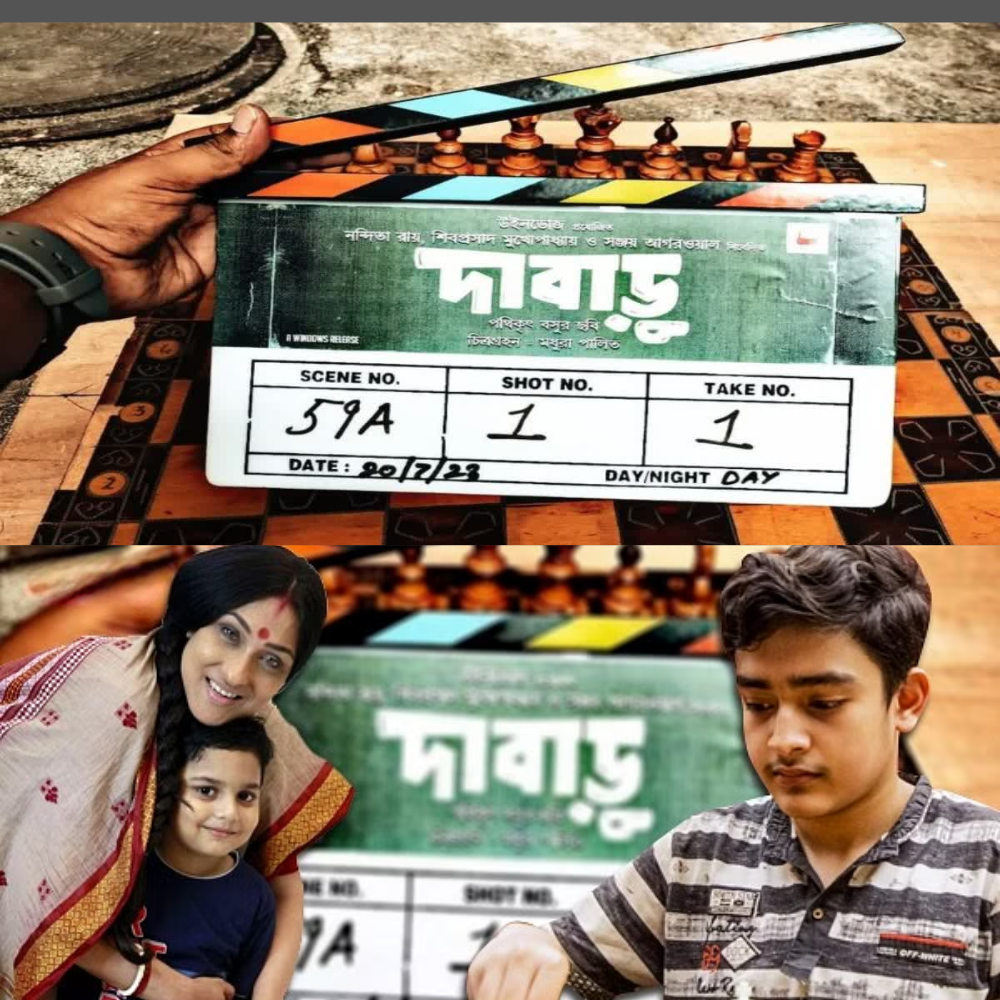Bengali films have long held a special place in the busy world of Indian cinema, where tales frequently unfold against colourful backdrops and complex narratives. “Dabaru,” a cinematic masterpiece that masterfully conveys the essence of Bengali culture, is tucked away within this rich tradition.
Set against the backdrop of rural Bengal, “Dabaru” creates a tapestry of human relationships, emotions, and traditions. The young director’s film offers a glimpse into the complexity of human existence by guiding audiences through the moving experiences of its characters.
About Dabaru
According to Times of India, Inspired by the life and times of the five-year-old chess prodigy Grandmaster Surya Sekhar Ganguly, Dabaru chronicles the journey of a young North Kolkata boy named Souro, who comes from a low-income family. Notwithstanding his father’s protests and their ongoing financial difficulties, his grandfather Dipankar Dey decides to professionally teach him to play chess with the assistance of his mother Karuna (Rituparna Sengupta). Eventually, he meets Chiranjeet, his coach, who helps him improve his skills and pushes him to compete so he can fulfil his goal of becoming a grandmaster.
Cast and Crew of Dabaru

Pathikrit Basu, the director of Hiripada Bandwala and Kacher Manush, makes sure that the movie doesn’t drag from the start, and Madhura Palit’s camera meticulously captures the winding lanes of North Kolkata, playing with the play of light and shadow that is accentuated by superb and realistic set design. The editing is also crisp and contributes to keeping the pace. This is evident not only in the vintage chess sets and the pens used to record moves but also in the small details that make it incredibly relatable, like the Sunday morning temptation of Mahabharata or a glimpse of an old cartoon.
Aritra Banerjee’s script keeps it tight even though the story has a Dangal vibe to it. It builds the bond between the mother and son and the grandfather and grandson throughout the movie, which is an important aspect of the story.
The music of Dabaru
Dabaru (Rupam Islam), the title track, and Jhogra kori chol (Mainak Mazoomdar and Surangana Bandyopadhyay), a romantic song, are two of the album’s most memorable tracks. The sound and background music are also in perfect sync. The movie keeps viewers interested to the very end, even though the second half of the movie wanes in some spots (perhaps that was the director’s intention) and the ending is probably stretched a little too much to heighten the melodrama. Therefore, even if you’re not too familiar with chess, Dabaru is a good movie to watch because of its great performances, clever and entertaining dialogue, and quick script.
Anyway, you can read our other articles at globalartnews.net as well.




